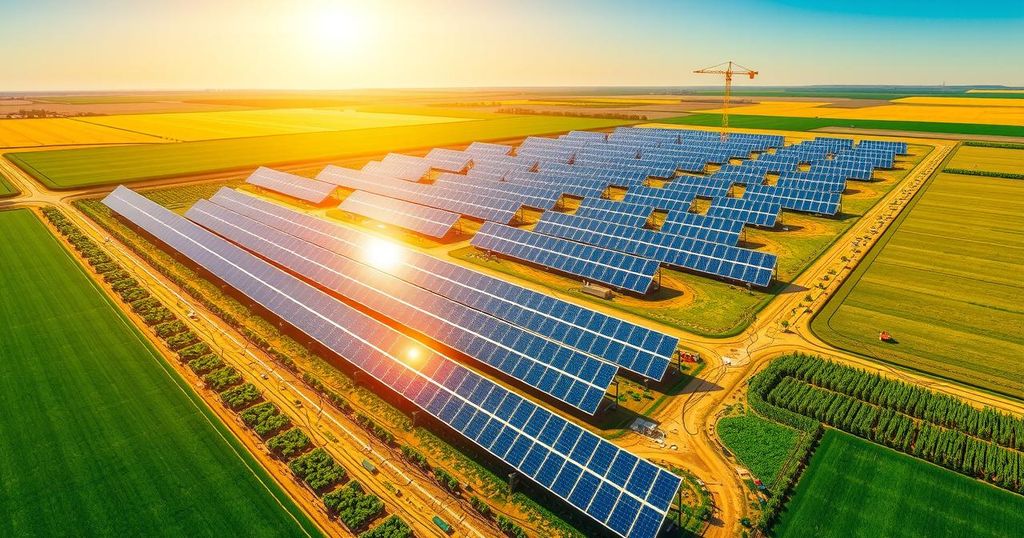A private Mozambican group is investing $110 million in a solar power plant in Gaza province, with a planned capacity of 95 MW. This initiative is part of the country’s broader strategy to enhance renewable energy production, targeting 1,000 MW of solar capacity by 2030. Despite recent growth, solar energy constitutes less than 1% of total electricity production in Mozambique.
A private Mozambican entity intends to invest $110 million in a solar power facility in Gaza province. This investment is documented in an Environmental Impact Study pertaining to the Chibuto Solar Power Plant. The project will feature a capacity of 95 MW, established through a collaboration between Sal Energia and the state-owned Electricidade de Moçambique (EDM) to enhance public grid capacity.
The solar power plant will occupy an area of 211 hectares at Chibuto Sede, with Sal Energia responsible for developing, financing, and constructing the plant along with its grid connection infrastructure. A 275KV transmission line spanning approximately 10 kilometers is slated for construction to connect the solar facility to the Chibuto substation.
Despite an 18.6% increase in electricity generation from solar parks in Mozambique during 2024, solar energy still represents less than 1% of the national total. Government data indicates that energy production across five large solar parks surpassed 101,247 MWh from January to December 2024, a rise from 85,343 MWh in 2023. However, the government’s target for solar production of 138,808 MWh was not achieved.
In the broader context of Mozambique’s energy strategy, the nation plans to implement solar projects in five regions by 2030 with an anticipated output of 1,000 MW. This significant increase aims to address the country’s strategic dilemma post-2030, balancing the need for green energy exports and supplying energy to industrial consumers.
Previous initiatives recorded 125 MW solar projects, out of which 80 MW connected to the grid. The forthcoming strategy envisions investments around $80 billion by 2050, during which at least 1,000 MW of new solar capacity will be developed across various identified locations, including Dondo and Cuamba, along with an additional 200 to 500 MW of onshore wind capacity.
Mozambique aims to install at least 7.5 GW of solar photovoltaic capacity and up to 2.5 GW of wind capacity by 2050. The Energy Transition Strategy emphasizes that fostering a conducive regulatory environment will encourage large industrial stakeholders to invest in substantial solar and wind projects. The document advocates for leveraging the Renewable Energy Auction Programme to stimulate competitive bidding for renewable energy contracts.
The investment of $110 million in a solar power facility in Gaza province signifies a pivotal step in enhancing Mozambique’s renewable energy capacity. Despite being a growing component of the energy sector, solar energy still constitutes a minimal percentage of total production. The strategic plan looking toward 2030 and beyond aims at significant growth in renewable resources, emphasizing the necessity for both regulatory support and substantial investments in solar and wind energy to meet future demands.
Original Source: clubofmozambique.com




